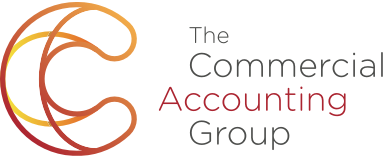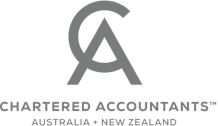Expert Knowledge You Can Trust
Individual Tax Planning – 2019
Rental Properties
Quantity Surveyor Reports
It may be worthwhile obtaining a quantity surveyor report, so you can claim a deduction for the construction costs and decline in value of any depreciable assets (note restrictions apply from 1 July 2017). A report for a simple residential property can cost around $500. These costs are also tax deductible.
Prepayments
Ensure any outgoings such as strata, rates, insurance and interest are paid prior to 30 June for a deduction to apply in the current financial year.
Travel
From 1 July 2017 you will no longer be able to claim travel expenses incurred to inspect residential rental properties. Such disallowed travel deductions will also not be included in the cost base or reduced cost base of the rental property.
Land Tax
If you own property other than your principal place of residence and the combined value of the land is greater than the land tax threshold, you will need to register for land tax. For NSW, the land tax thresholds are:
| Year | General Threshold | Premium Threshold |
| 2019 | $692,000 | $4,231,000 |
| 2018 | $629,000 | $3,846,000 |
| 2017 | $549,000 | $3,357,000 |
Personal Service Income
Taxation laws include measures that are designed to limit the deductions available to certain contractors, whether operating as a sole-trader or through a company, trust or partnership; these are known as the Personal Services Income (PSI) measures. A taxpayer who meets certain specified tests will be treated as carrying on a personal services business and will be able to claim a wider range of deductions. If you are operating a personal service business you need to be aware of the Australian Taxation Office’s strict approach to income retention and income splitting.
Non-Commercial Losses
For a business to be commercial under the “non-commercial losses tests”, the business needs to meet certain prescribed tests.
If the tests are not met, any losses arising from the activities must be carried forward and offset in a later year against future income from the same type of source.
If you satisfy any or all of the non-commercial business loss rules, but your adjusted taxable income is greater than $250,000, you are still not entitled to offset these losses against your other assessable income. These losses will be deferred for use in future years. There are special rules for Primary Production businesses.
Government Co-Contribution
Employees and self-employed individuals earning between the relevant thresholds below may be eligible for the government co-contribution payment of up to $500 if a personal (after tax) contribution of at least $1,000 is made into superannuation.
| Year | Max Entitlement | Lower Threshold | Higher Threshold |
| 2019 | $500 | $38,564 | $53,564 |
| 2018 | $500 | $37,697 | $52,697 |
| 2017 | $500 | $36,813 | $52,813 |
Super Contribution Deductions
We suggest that any super contributions you plan to claim a tax deduction for are made by 25 June each year and a Notice of Intent to Claim Form is completed. Note that internet transfers of contributions are not considered paid until they reach the super fund’s bank account and if left too late may trigger the following year cap limits inadvertently.
Concessional Super Contribution Caps (Tax Deductible)
| Age of Member | 2019 FY Cap | 2020 FY Cap |
| < 65 | $25,000 | $25,000 |
| > 65 (subject to eligibility) | $25,000 | $25,000 |
| Carry-forward mode (See below) | N/A | Available |
From 1 July 2018, members can make ‘carry-forward’ concessional super contributions if they have a total superannuation balance of less than $500,000. Members can access their unused concessional contributions caps on a rolling basis for five years. Amounts carried forward that have not been used after five years will expire. The first year in which you can access unused concessional contributions is the 2019–20 financial year.
If you exceed the concessional contributions cap, any excess concessional contributions will be included in your assessable income and taxed at your marginal tax rate less 15% tax offset (and subject to interest charge).
Non-Concessional Contribution Caps (No Tax Deduction)
| Type | Member’s Total Super Balance
@ 30 June 2018 |
Amount of Cap |
| Standard | < $1.6M | $100,000 |
| > $1.6M | $NIL | |
| Bring-Forward rule
(< 65 yrs & Balance < $500K) |
< $1.4M | $300,000 over 3 years |
| $1.4M to < $1.5M | $200,000 over 2 years | |
| $1.5M to < $1.6M | $100,00 | |
| > $1.6M | Nil |
Additional Super Contributions Tax (Division 293)
Individuals with income exceeding $250,000 are liable to an additional 15% contributions tax (i.e. bringing the total rate to 30%) on concessional contributions. You should take this into consideration when making superannuation contributions prior to year-end.
Interest Expenses
If you are an individual and have to pay interest expense which is not incurred in carrying on a business, you can prepay your interest expense in the year and get the full deduction in the year.
Note the interest cannot be prepaid for more than 12 months and the prepayment period must end in the next financial year.
Donations
To claim a tax deduction for donations of $2 or more, the donation must be made to a “deductible gift recipient” and a donation receipt obtained. Note raffle tickets and gifts purchased are not tax deductible.
Medicare Levy Surcharge (MLS) & Private Health Insurance Rebate (PHIR)
The thresholds for the imposition of the MLS if you are not covered by private hospital insurance are as follows for the 2019 financial year:
– Singles (no dependants) – $90,000
– Families – $180,000 (plus $1,500 for each dependent child after the first)
Work Related Car Expenses
There are now only two methods which can be used to claim a deduction. These are:
– A single flat rate cents per kilometre method for up to 5,000 business kms per year
– Logbook method (must be kept over 12 continuous weeks and updated every five years)
Work-Related Travel Expenses
Special substantiation rules apply to expenses in relation to overseas and domestic travel. The effect of the substantiation rules is that travel expenses are not deductible unless the following two conditions are satisfied:
– Written Evidence – Business travel expense, involving staying away from home for at least one night must be substantiated by documentary evidence such as a receipt, invoice or similar document from the supplier
– Travel Diary – You must keep a travel diary (or similar document) for travel involving being away from your usual place of residence for a continuous period of six or more nights
Salary Sacrifice
To ensure the salary sacrifice strategy is effective for your circumstances, the benefits received must be taxed at a lower rate than your salary under the Fringe benefits Tax (FBT) rules. You must also ensure that the salary packaging arrangements are entered into before the services are performed or before the salary review time. Due to the varying calculations for different benefits under the FBT rules, we are happy to discuss whether a salary sacrifice arrangement is beneficial for you.
Tax File Number withholding
Ensure banks are advised of your TFN where you are receiving large interest payments. Every year we see a refund on TFN withholding from interest income meaning you are losing the benefit of using this cash throughout the year.
Tax Free Threshold
The tax-free threshold for the 2019 financial year is $18,200. You can earn slightly more than the threshold before any income tax is payable, when considering both the Low-Income Tax Offset (LITO) and the recently announced Low & Middle Income Tax Offset (LMITO).
Low & Middle Income Tax Offset
The budget introduced a new offset (the LMITO) of up to $530, which will phase out at the rate of $0.015 for each dollar of taxable income over $90,000.
PAYG Withholding (PAYGW) and Instalment (PAYGI) Variations
Calculate whether the PAYG installment for the final quarter or final month of the year can be varied based on your estimated tax position for the year.
Consider applying for a PAYG withholding variation for the year commencing 1 July if the normal withholding rate leads to a large refund at the end of the income year because of your tax-deductible expenses being higher than normal. This can quite often occur with negatively geared investments.
Other Annual Considerations
Please contact us if you require assistance in reviewing and updating any of the items below:
– Wills, Powers of Attorney & Guardianships
– Current mortgage interest rate and terms review
– Unclaimed super or other monies








